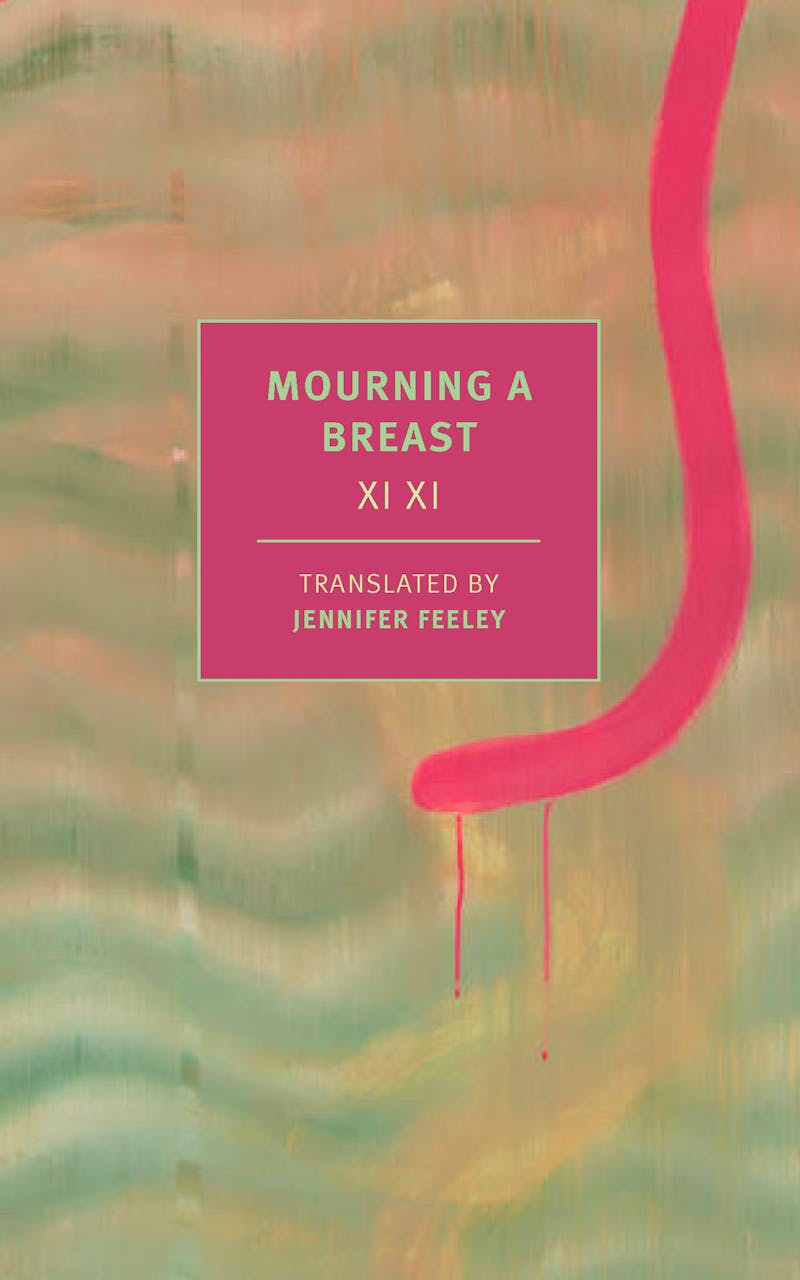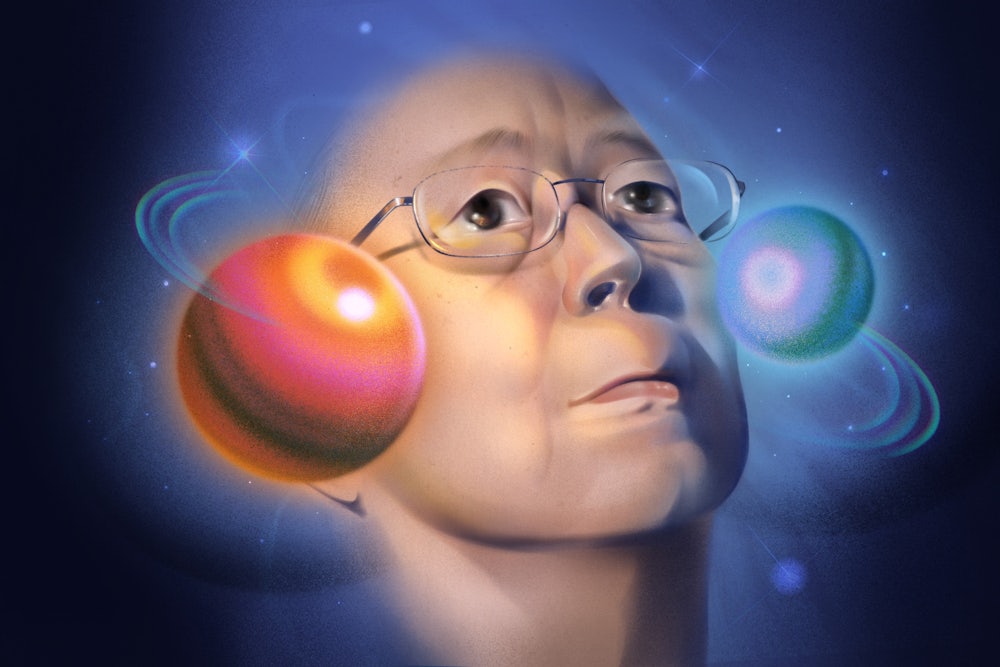In the fall of 1989, when the Hong Kong writer Xi Xi was in her early fifties, she found a lump in her breast. Within weeks, she’d been diagnosed with breast cancer, an illness she’d previously thought of as distant, Western, nothing for her to worry about. Cancer was then a taboo subject in Chinese culture, which did not dissuade Xi Xi from writing about it. In 1992, she released Mourning a Breast, an idiosyncratic text that was hugely praised on its reception and is now considered one of the first instances of a writer discussing her experience with breast cancer in standard written Chinese. Whether the narrator is her, granted, can be hard to say. Mourning a Breast has been called a “therapeutic memoir” and a “semi-autobiographical novel”; it contains literary criticism, science writing, nutritional calculations, and poetry. It’s hybrid enough to be sui generis, and yet it feels less like a self-conscious experiment than a warm, captivating mix of genres.
In her preface, the author writes that some of her friends regard the book “as a novel, and others as a collection of essays,” then shrugs off the question of category entirely. She’s more concerned with Mourning a Breast’s purposes, which, despite the title’s suggestion of private grief, are rarely individual. She explains that Mourning a Breast is designed to encourage readers to care for their own health, to help them support friends and family diagnosed with cancer, and to push against the “incurable disease” of ignorance.

When she writes that she “doesn’t dare claim to smash any taboos,” it’s less an admission than a show of humility—the same instinct that leads her to close several chapters with instructions for bored readers who want to hop around. Xi Xi does a fair amount of hopping herself. She often collages quotations and interpretations, dipping in and out of visual art, mythology, and a fair amount of literary criticism. One chapter rarely leads straight to the next: In “Arcades,” midway through the book, the narrator goes window-shopping downtown, talking about cancer only while looking wistfully into a lingerie store; in the subsequent chapter, “Counterattack,” she goes deep into the history and science of oncology. Such an associative style helps Xi Xi build quite a lot of information about cancer into the book without seeming to shoehorn it in: She goes where she goes, always suggesting rather than demanding readers come along.
Mourning a Breast is a persistently sunny take on illness, a story rooted in the writer’s suffering that consistently turns away from both the painful and the personal. Newly and elegantly translated by Jennifer Feeley, it offers a refreshing corrective to the tendency in contemporary English-language writing—novels and nonfiction alike—to delve relentlessly into the subjective. Mourning a Breast treats cancer as an invitation to investigate connection, from the narrator’s relationship to her body to the interactions Hong Kong’s citizens have with its public medical facilities to silence’s dangerous capacity to deepen an already profound loss. At various points, the book is about aging, friendship, and physical rejuvenation. For all that the title seems heavy, it’s emphatically not about grief—and, really, not even that much about breasts.
Although Mourning a Breast is peripatetic, it has two strong narrative arcs. One is the linear progression of the protagonist’s illness: Mourning a Breast starts as she approaches her diagnosis and ends once she’s done with radiation. In her preface, Xi Xi writes that the book has “no melodramatic or sensationalist characters or plot twists”; in fact, it hardly has any interest in drama, which means that it never seriously suggests that the narrator’s cancer won’t go into remission. By choosing such an understated way of handling the arc of sickness, Xi Xi encourages readers to pay attention to the details of the narrator’s treatment, not its outcome.
She also directs our attention to the book’s second arc: the protagonist’s rapprochement with her body. Until her sickness, she reflects, “I never really knew I had a body. The books I’d read had focused on caring for the soul. As a result, the body was completely set aside, and while my soul had seemingly made no progress, my body had secretly deteriorated.”
At first, the narrator tries hard to hide in literature, though her goal is more to avoid her body than to care for her soul. When she checks into the hospital for her biopsy, she brings Madame Bovary in French, English, and Chinese in order to compare translations (the English one, she sniffs, is “dreadful”). But, unsurprisingly, she can’t focus, and sets the novel aside to concentrate on her new surroundings and just-as-new anxiety. After the operation, though, she goes back to books in her mind, managing the disgust she feels at having to wear a pan to catch drainage from her wound by deciding she’s like Santiago Nasar, the main character of Gabriel García Márquez’s Chronicle of a Death Foretold, who ends the novel with his own intestines in his hands. But Santiago dies—it’s right there in the title—and Xi Xi’s narrator is diagnosed with cancer. She tries once more to take refuge in literature after her mastectomy, turning to the ancient Chinese Classic of Mountains and Seas, but in its myths of one-legged ghosts and headless, nipple-less deities, she sees an unwelcome reflection. “I was a monster,” she thinks. “I’d lost a breast—I was a monster formed by a lack of organs.”
Yet the same curiosity that leads her into books from across continents and centuries leads her toward her new physical self. Despite her distress at her mastectomy, she marvels at the taut, leakproof stitches keeping the skin of her chest together. She sees the existence of stitches as both a sign of tremendous human progress and proof that the “human body is extraordinary … a true heavenly robe without any seams.” Before long, she’s emerging from her apartment, walking and exercising, gradually adjusting not only to the rhythms of recovery but to her new interest in caring for her body. As she goes through radiation, she concentrates on her clothes, her diet, her physical relationships to her doctors. She wants to know if the surgeon who did her mastectomy saw her as a whole being or just “bones, tendons, and flesh,” and she’s pleased when a class of medical students comes to examine her. Her surgery is only months in the past, but already, she has changed enough that the lesson simultaneously makes her feel “as though I had another body, as though I were detached” and offers her a chance to “practice getting to know myself.” By the end of the book, she’s still very much in need of that practice. Mourning a Breast hardly engages with breasts until its closing chapter, a survey of breasts in art history. Xi Xi has her protagonist discuss pyramids, Madonnas, and a Henry Moore nude with concave breasts as proxies for talking about the one she’s lost, which still remains somewhat beyond her. Her relationship to her body has come a long way, but she’s not fully inhabiting it yet.
Xi Xi’s narrator appreciates taking part in a medical lesson not only because it makes her pay attention to her body, but because it’s an example of her illness creating knowledge, rather than just taking things—her breast, her comfort, her time—away from her. She both seeks and encounters connection at every stage in her treatment. Over and over, the narrator praises and celebrates her friends, whom she describes as her only earthly wealth. She includes scripts of several conversations with Ah Kin, a friend of a friend who’s been in breast cancer remission for five years and offers comfort and guidance, repeatedly telling her nothing’s going to be as frightening as it seems and promising to “chat about anything you’d like to know.” Both women are patients at one of Hong Kong’s state hospitals, and the narrator is startled by how quickly her biases against public medicine break down. Although the oncology unit can “cultivate patience,” as Xi Xi writes wryly, it otherwise exceeds the narrator’s expectations entirely, provoking in her a new sense of citizenship. Besides, waiting helps her befriend other patients, including three to whom she refers as “white-gowned angels.” In a work more engaged with death, this description would suggest mortality, but Xi Xi’s narrator looks relentlessly away from the possibility of dying; angels, here, is an expression of her determined positivity. She doesn’t have her head entirely in the sand—she sees “despondent-looking people” everywhere, at one point comparing the hospital corridors to a Henry Moore drawing of refugees in air-raid shelters—but she chooses to concentrate on mutual support rather than individual pain.
Ultimately, this decision renders the question of whether Mourning a Breast is a novel or an autobiography irrelevant. Its narrator is not telling her story in order to explore it or expel it from herself. She’s not interested in her own fear or physical discomfort; she doesn’t want readers to know how hard she had it or how unusual her journey was. Her desire to connect with others in the book is also the book’s agenda. On every level, both Xi Xi and her narrator are out to demystify, to engage, to offer more empathy than they seek. It’s possible that this goal obstructs the narrator’s ability to connect to her body, to mourn her breast as the title promises. But by turning away from the narrator’s physical self, Xi Xi turns the stifling world of sickness into an expansive one, at once dealing frankly with the gravity of breast cancer and imbuing her descriptions of it with a surprising ease.
Jennifer Feeley writes in her translator’s note that “joy and whimsy” are characteristic of Xi Xi’s work, but the lightness in Mourning a Breast feels more philosophical than it does playful. Xi Xi’s warm tone and optimistic attitude invite readers closer, extending the same generosity to her audience that Ah Kin does to her narrator. In fact, the narrator’s lack of physicality—and her nebulous relationship to her creator—make her much like Ah Kin, who, for most of the book, is just a voice on the phone promising to chat as much as the narrator likes; to turn cancer from a shadowy nemesis to something that happens to people you know; to help get you or someone you love through a tough time. It’s hard to imagine a contemporary American book outside the self-help sphere making a similar promise—which, after reading Mourning a Breast, seems like not just a lack but a failing in our literary culture. Mourning a Breast suggests another use for personal writing, another mode of thinking about experience. It’s a model for getting out of ourselves.






